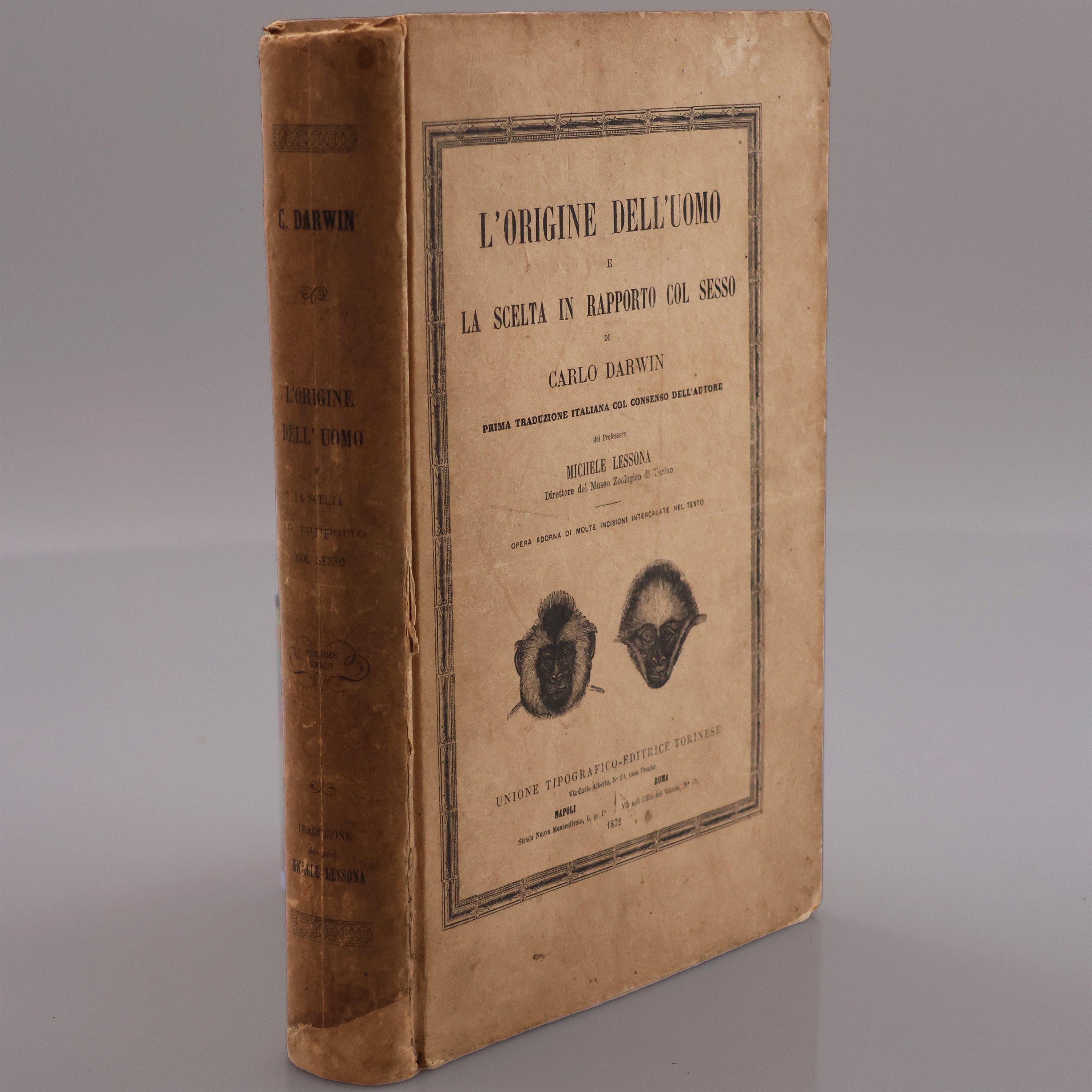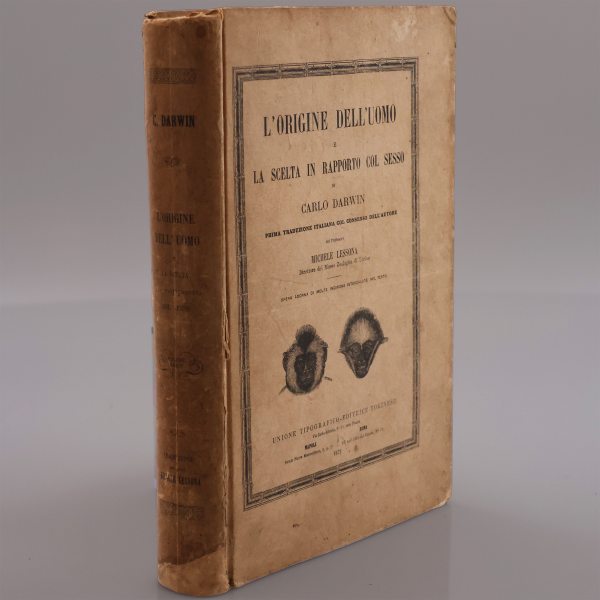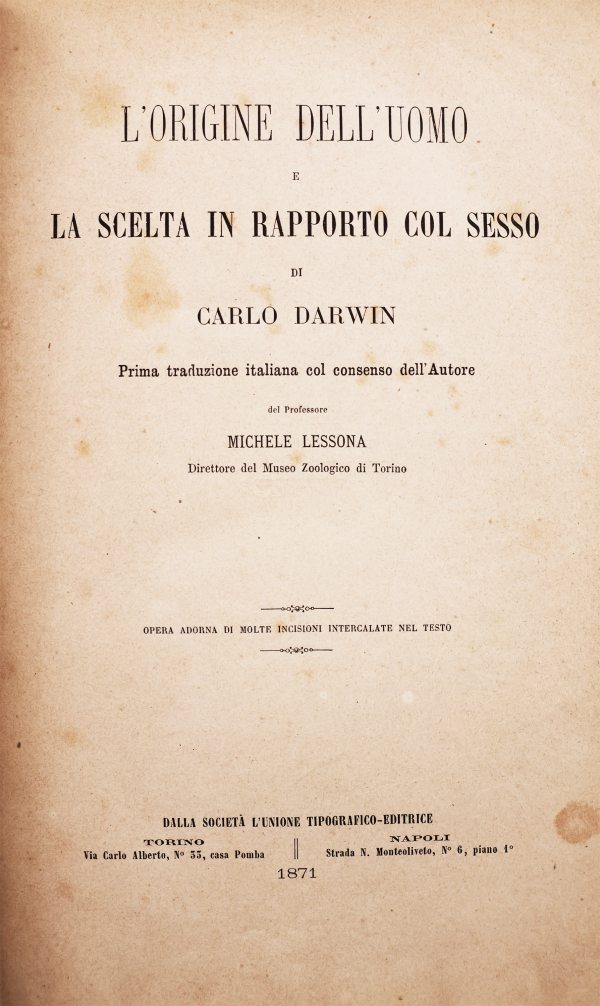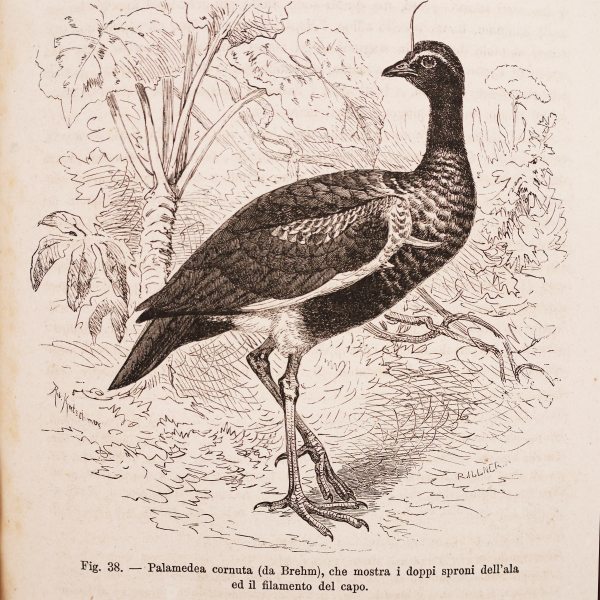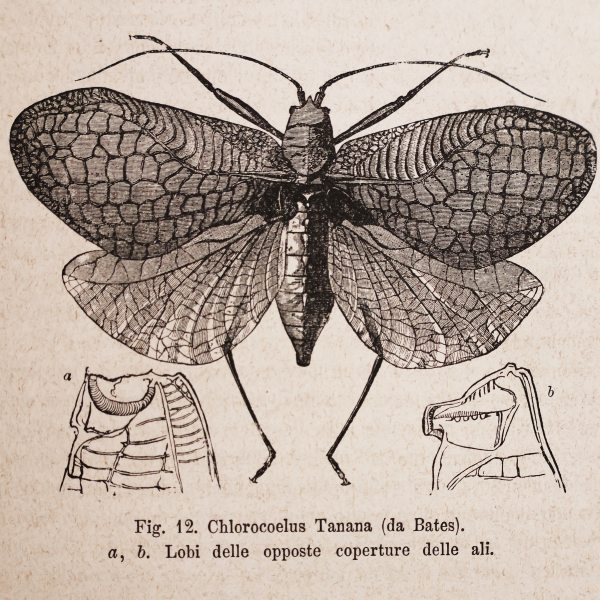Darwin Charles (1809 – 1882). L'origine dell'uomo e la scelta in rapporto col sesso. Prima traduzione italiana col consenso dell'autore del Prof. Michele Lessona. Unione tipografico-editrice, Torino Napoli, 1871
First edition in italian language
First Italian edition, authorized by the author, of The Descent of Man and Selection in Relation to Sex, originally published in London by John Murray in 1871.
Bound in publisher's hardcover, the front cover bears the date 1872, while the title page indicates 1871. The work was long regarded as an extension of On the Origin of Species, applying the same laws from animals to humans. Later interpretations, however, viewed this book as marking a second revolution, suggesting that humanity represents a reverse effect of evolution.
8° (260x172mm), pp 672
Private collection
Some spotting, general wear, bumped.
Since we are not professional conservators or restorers, we urge you to consult with a restorer or conservator of your choice who will be better able to provide a detailed, professional report. Prospective buyers must understand that any statement made by Coradi Rare Finds is merely a subjective opinion.
Darwin Charles - Shrewsbury February 12 1809, Londra April 19 1882; was an English naturalist, geologist, and biologist, best known for developing the theory of evolution by natural selection. His work fundamentally changed the way we understand biology and the development of life on Earth.
Early Life and Education
Darwin was born in Shrewsbury, England, into a wealthy family. He initially studied medicine at the University of Edinburgh, but he found little interest in it and eventually transferred to Cambridge University, where he trained as a clergyman. It was at Cambridge that Darwin developed a keen interest in natural history.
Voyage of the HMS Beagle
In 1831, Darwin embarked on a five-year journey around the world aboard the HMS Beagle. During this voyage, he made extensive observations of the flora, fauna, and geology of South America, the Galápagos Islands, and other regions. It was here that he began formulating ideas about species adaptation and change over time, noting that organisms appeared well-suited to their environments.
Theory of Evolution by Natural Selection
Darwin’s most significant contribution to science is the theory of evolution by natural selection. He argued that species evolve over time through a process where individuals with advantageous traits are more likely to survive and reproduce, passing those traits on to future generations. This theory challenged the prevailing belief in the fixed, unchanging nature of species, which was largely influenced by religious interpretations of creation.
His groundbreaking work culminated in the publication of On the Origin of Species in 1859, where he presented evidence for evolution and natural selection. The book created a massive shift in scientific thinking, as it provided a unifying theory for the diversity of life on Earth.
Historical Context
When Darwin developed his theory of evolution, it was a time of significant scientific, intellectual, and religious change. The 19th century was marked by the rise of modern science and the challenge to traditional religious views of the world. Darwin's theory was revolutionary because it provided a naturalistic explanation for the diversity of life, countering the Biblical account of creation. His ideas were met with resistance from religious groups, but over time, his work gained widespread acceptance in the scientific community.
The Industrial Revolution was also underway, bringing technological and economic changes. Advances in geology, paleontology, and biology in the years leading up to Darwin’s work helped lay the foundation for his theories. The work of scientists like Charles Lyell, who argued for uniformitarianism (the idea that geological processes occur gradually over long periods of time), and Thomas Malthus, who wrote about population dynamics, influenced Darwin's thinking on natural selection.
Legacy
Charles Darwin’s theory of evolution laid the groundwork for modern biology and has had profound implications in various fields, from genetics to anthropology. His ideas have been refined over time with the discovery of DNA and the mechanisms of heredity, but the central concept of evolution remains unchanged. Darwin's work sparked debates on the relationship between science and religion, and his legacy continues to influence scientific and cultural discussions about human nature, origins, and the environment.
In summary, Darwin was a pivotal figure in the history of science, whose theory of evolution by natural selection reshaped our understanding of life on Earth and continues to influence research today.
